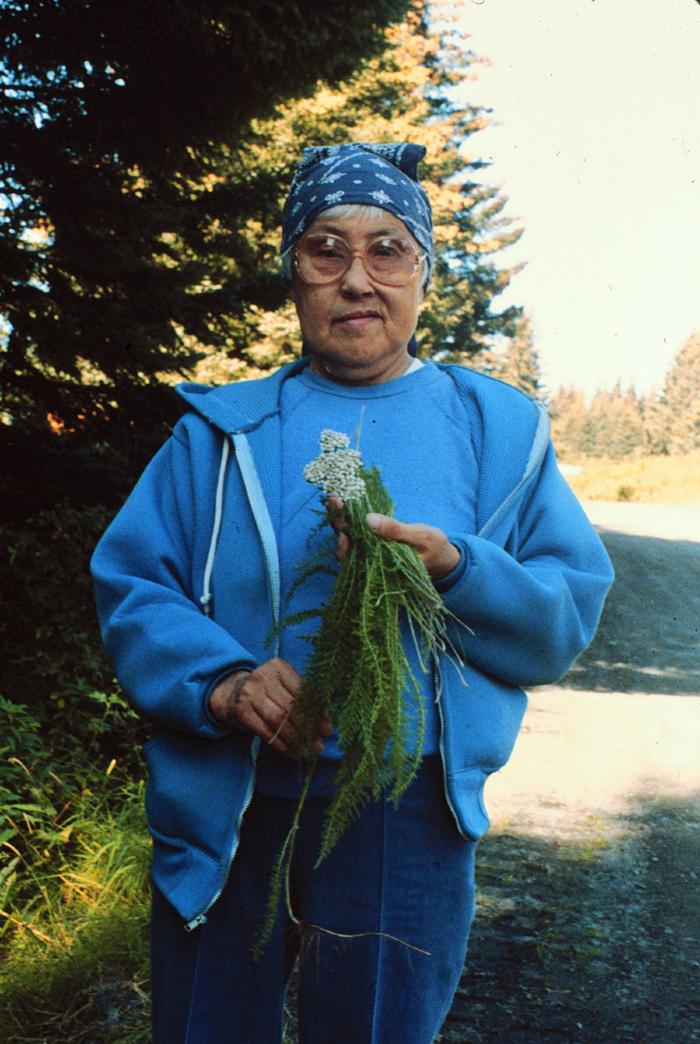Smell — Narluni

The human sense of smell pales by comparison to that of many animals, yet nature equipped people to recognize thousands of odors strong and faint. Biology isn’t the only determinant of the way we smell, however. Our cultural heritage influences everything from the scents we enjoy to how we use smells in our daily lives.
For example, historical records tell us that the early sailing ships that visited Kodiak smelled bad to Alutiiq people, as did the scent of Alutiiq villages to sailors. Each culture had different olfactory preferences.
Strong smells have long been a part of Alutiiq society. Elders remember the pungent odors of cooking bear meat, weasel skins stretched to dry, and fermenting salmon eggs. These aromas were not unpleasant, although an Alutiiq legend featuring a comical, smelly raven shunned by his wife, reminds people that smelling bad can cause problems!
Where there are strong smells, people often devise ways to eliminate them. Alutiiq people use steam bathing and deodorizing plants to manage odors. People still rub fresh pineapple weed on their hands to neutralize smells, hang alder branches in smokehouses and outhouses to refresh the air, and cover traps in grass to remove human scent. Hunters will also rub their hands with angelica before touching their traps to mask their scent.
